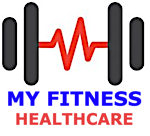Whether you’re an aspirant, a beginner or a seasoned practitioner, yoga can have positive effects on your mental and physical health. While some people unroll their mats to develop flexibility and strength, others might be drawn to the discipline for improved focus, relaxation or spiritual growth.
“Yoga really is for everyone,” said Stacie Graham, a yoga teacher in London and author of “Yoga as Resistance.” But in many cases, she said, “that’s not the perception.”
If you started doing yoga in a studio environment, she said, you’re likely to be “introduced to a physical practice — you’re not being introduced to the wisdom tradition.” Dr. Graham added that books can help broaden your understanding.
We asked 14 yoga teachers for the titles they suggest to students at all levels. Several of the books recommended are classics that have helped generations of yogis; other selections have helped make the practice more accessible. You’ll find their favorites below.
This book of step-by-step yoga sequences was written by T.K.V. Desikachar, the son of the modern yoga pioneer Tirumalai Krishnamacharya, “whose students brought yoga to us in the way that we practice in most places today,” Dr. Graham said.
It’s a top recommendation for Amanda McCarroll, co-owner of the Buddhi Yoga studio in La Jolla, Calif., because “it’s written in a clear, simple way,” yet it “digs very deeply into the most important philosophical aspects of yoga,” she said.
Mia Williams, a yoga instructor in New York City, calls it a “staple, found in almost every teacher training.” The book also lays out the Yoga Sutras of Patanjali, which are the philosophical underpinnings of the wisdom tradition. It’s easy “for a beginner to soak up key ideas of the philosophy and psychology of yoga,” she said.
Dianne Bondy is a leader in the “Yoga for All” movement, and this book “makes yoga feel even more accessible,” said Tahl Rinsky, a yoga trainer based in New South Wales, Australia.
People often hear that there’s only one way to do a pose, Dr. Graham said, and sometimes even the language that yoga teachers use can be exclusionary. But “Yoga for Everyone” reminds readers that anyone with “limited mobility or physical injury or even physical disability is still able to practice yoga,” she said.
“The emphasis here is not on complex or advanced movements, but on helping the reader find their comfort level,” Rinsky said, which can remove pressure and “unlock the countless benefits of regular practice.”
B.K.S. Iyengar was the founder of Iyengar Yoga, a style that places heavy emphasis on posture and alignment. Though he is credited for popularizing yoga in the West, he has been criticized for his teaching methods, which included slapping and kicking students. Still, many of the experts interviewed stressed that this book has important educational value.
The text, published over 50 years ago, lays out the foundation of hatha yoga and includes a guide of 300 weekly poses. It’s great for beginners who “really want to go deep,” McCarroll said.
This 2020 title is a must “because of the intersection of yoga and social justice,” said Tejal Patel, co-host of the “Yoga is Dead” podcast. Many people associate yoga with “just movement or just meditation,” Patel explained. “This really teaches you more about the practice.”
“Susanna’s book is a great introduction to yoga, with a capital ‘Y,’ ” Dr. Graham said. “She explains yoga as a wisdom tradition, connects the effects of colonialism with the present-day practice, and offers concrete advice on how to appreciate rather than culturally appropriate.”
First published in 2007 by Leslie Kaminoff and Amy Matthews — both of whom have been teaching yoga, movement and anatomy for decades — the title offers a comprehensive look at poses. “If people want to understand, ‘Why can’t I do this posture, Why is this posture hard for me?’ ” Dr. Graham said, “this is a really helpful book.”
Kaminoff came under fire in 2016, after he made inflammatory comments about a sexual harassment lawsuit against a senior teacher at Jivamukti Yoga, a studio in New York City. The book is nonetheless regarded as valuable by the experts we interviewed. It’s great for a beginner who “wants to know the specific application of muscles and movement and effect of a pose on the body,” Patel said.
Published in 1946, this autobiography of Paramahansa Yogananda, who died in 1952, is “a seminal text,” Patel said. It provides an inside account of his life, including childhood, finding a teacher, becoming a monk and teaching Kriya Yoga meditation.
“It’s a classic,” said Colleen Saidman Yee, owner of Yoga Shanti in Sag Harbor, N.Y. “It’s the first book I read, and that’s what brought me to yoga.”
In 2013, Jivana Heyman co-founded the Accessible Yoga Training School to offer students with disabilities the chance to become yoga teachers. This book, published in 2019, shares this philosophy by demystifying yoga poses and meditation techniques.
“It’s all about listening to your body and making your yoga practice adapt to your needs,” said Maria Andrews, a yoga teacher based in Spain, “rather than painfully forcing your body into pretzel-like shapes because that is what yoga ‘should’ look like.”
Andrews says she highly recommends the title to beginners “so they don’t get lost trying to do the ‘best’ downward dog, headstand, warrior three in the yoga class.”
Hope Reese is a journalist who writes for Vox, Shondaland, The Atlantic and other publications. Her book, “The Women Are Not Fine,” will be published in 2025.

